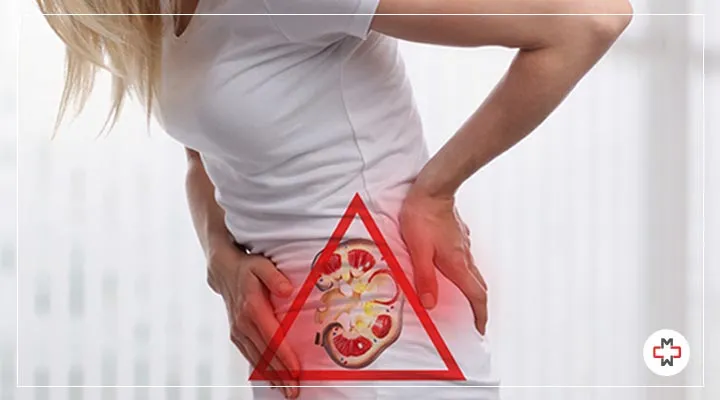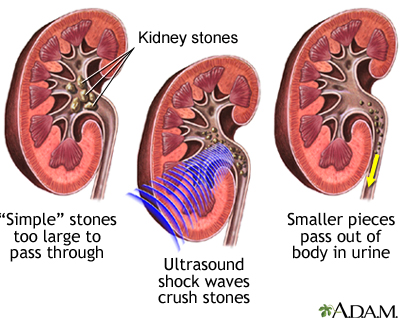Exactly how to Differentiate Between Kidney Stones vs UTI: Trick Aspects and Analysis Tips
Exactly how to Differentiate Between Kidney Stones vs UTI: Trick Aspects and Analysis Tips
Blog Article
Understanding the Key Distinctions Between Kidney Stones and Urinary Tract Infections: A Detailed Introduction for Clients
Understanding the differences between kidney stones and urinary system infections (UTIs) is necessary for clients that may be experiencing similar signs and symptoms yet encounter greatly different wellness challenges. While both conditions can show up discomfort in the reduced abdominal area or back, their underlying causes, diagnostic approaches, and therapy methods split dramatically. A nuanced understanding of these differences not just help in precise self-assessment however also notifies discussions with doctor. As we discover these vital aspects, it ends up being clear that acknowledging the distinct features of each condition can profoundly affect patient outcomes. What might be the most effective strategy to resolving these distinctions?
Introduction of Kidney Stones
The development of kidney stones, a commonly incapacitating and unpleasant condition, highlights the essential significance of preserving renal health and wellness. The primary types of kidney stones include calcium oxalate, calcium phosphate, uric acid, struvite, and cystine stones, each with distinct reasons and danger aspects.
Numerous variables contribute to the formation of kidney stones. In addition, metabolic problems and particular medical conditions might predispose individuals to stone formation.
Signs and symptoms of kidney stones can consist of extreme flank discomfort, hematuria, and nausea, which frequently trigger immediate medical analysis. Therapy alternatives vary, varying from raised liquid intake and nutritional adjustments to clinical treatments such as lithotripsy or medical elimination, relying on the size and area of the stones. Understanding these aspects is essential for efficient avoidance and administration.
Review of Urinary System System Infections
Urinary system tract infections (UTIs) stand for a typical yet substantial health and wellness worry, influencing countless individuals annually. These infections happen when bacteria enter the urinary system, which includes the kidneys, ureters, bladder, and urethra. Most of UTIs are created by Escherichia coli, a kind of bacteria normally found in the intestinal tract. While UTIs can affect anyone, they are particularly common in women due to physiological differences that promote bacterial entrance.
The risk factors for creating a UTI include sex, certain sorts of contraception, urinary retention, and a background of previous infections. Individuals with damaged body immune systems or pre-existing problems, such as diabetic issues, might also go to higher risk. UTIs can be identified into two main types: challenging and straightforward. Uncomplicated UTIs are normally limited to the bladder and are much more usual in healthy and balanced people, while complicated UTIs might include the kidneys and occur in those with underlying health problems.
Motivate diagnosis and therapy are important to avoid problems, such as recurring infections or kidney damage (Kidney Stones vs UTI). Usually, UTIs are treated with antibiotics, and safety nets can be employed for those with regular events
Common Signs And Symptoms Comparison
Signs and symptoms of urinary tract infections and kidney stones can usually overlap, leading to complication in diagnosis. In contrast, kidney stones often tend to cause severe, sharp pain that emits from the back to the lower abdomen and groin, frequently defined as colicky pain.
Furthermore, UTIs might be gone along with by high temperature and chills, specifically in more severe cases, while kidney stones can lead to web link nausea and throwing up because of intense pain. Both conditions can cause blood in the pee (hematuria), but the existence of blood is extra frequently connected with kidney stones. While discomfort during urination is a trademark of UTIs, kidney stones generally offer with more acute pain episodes, which might reoccur. Understanding these symptom distinctions can help people in recognizing their problem, although clinical examination continues to be crucial for exact medical diagnosis and therapy.
Medical Diagnosis Techniques
Exactly how can medical care experts accurately separate in between kidney stones and urinary system system infections? The analysis procedure begins with an extensive clinical history and a comprehensive review of the click here now client's signs. Clinicians typically execute a health examination, which might disclose inflammation in the abdominal area or flank region, leading the diagnostic path.
Laboratory tests play a crucial function in comparing these 2 conditions. Kidney Stones vs UTI. A urinalysis can determine the visibility of blood, crystals, or germs, which are indicative of either problem. In instances of urinary system system infections, the urinalysis may show a considerable existence of white blood cells and nitrites, while kidney stones might offer with details crystals
Imaging research studies, such as abdominal ultrasound or computed tomography (CT) scans, are vital for visualizing kidney stones. These imaging methods enable health care companies to evaluate stone dimension, area, and possible obstructions in the urinary system system. On the other hand, urinary system infections usually do not need imaging unless issues are believed.
With each other, these diagnostic methods equip healthcare specialists to precisely identify and set apart in between kidney stones and urinary system infections, guaranteeing that clients obtain ideal care and monitoring.
Treatment Options and Prevention
While both kidney stones and urinary tract infections (UTIs) need timely treatment, their administration strategies differ significantly.
The therapy for kidney stones often entails discomfort monitoring, hydration, and in some cases, medical treatments such as extracorporeal shock wave lithotripsy (ESWL) or ureteroscopy to remove or break down stones. Clients are frequently recommended to enhance liquid consumption to assist in stone flow and minimize reoccurrence. Nutritional alterations may additionally be essential, depending on the stone kind.
On the other hand, UTIs are mostly treated with anti-biotics to eradicate the microbial infection. The certain antibiotic prescribed depends upon the microorganisms recognized and local resistance patterns. Additional steps, such as raised fluid intake and urinary system analgesics, may aid minimize signs.
Prevention techniques differ also; for kidney stones, preserving appropriate hydration and sticking to nutritional constraints can be reliable. For UTIs, precautionary strategies include appropriate health techniques, peing after intercourse, and potentially prophylactic visit here antibiotics for recurrent infections. Comprehending these therapy and avoidance methods is important for effective monitoring and to decrease the risk of difficulties connected with both conditions.
Verdict

Understanding the distinctions between kidney stones and urinary tract infections (UTIs) is necessary for individuals that may be experiencing similar symptoms yet face vastly various health and wellness difficulties. The key kinds of kidney stones consist of calcium oxalate, calcium phosphate, uric acid, struvite, and cystine stones, each with distinct causes and danger aspects.

Report this page